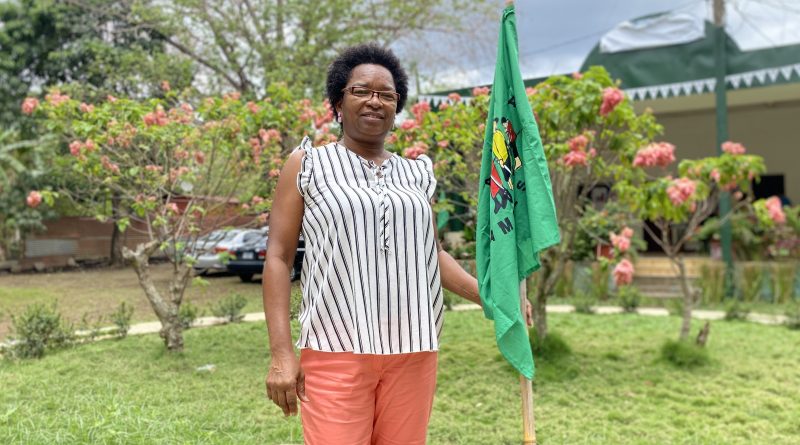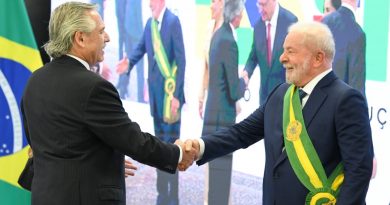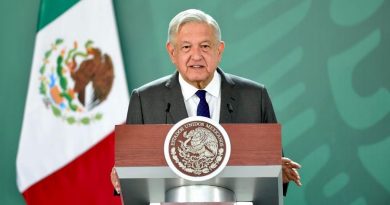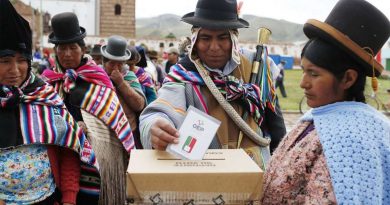Popular Campesina Feminism in Dominican Republic
Class-conscious, rural, Dominican feminism is forging ahead and forming alliances with movements fighting for the democratization of land and resources, among others.
While in Managua, we sat down with Juana Ferrer Paredes, a leader within the Confederación Nacional de Mujeres Campesinas (National Confederation of Rural Women – CONAMUCA) and the Coordinadora Latinoamericana de Organizaciones del Campo (CLOC), in between events commemorating the 30th anniversary of the founding of La Vía Campesina.
Juana is a member of the Political Commission for the CLOC, and Dominican Republic is home to the regional secretariat of the CLOC. The country has a significant number of active organizations which form part of La Vía Campesina’s Caribbean region.
The Dominican Republic was among 24 countries represented at a gathering of leaders of the international peasants’ movement, La Vía Campesina, held in Managua at the end of April.
CONAMUCA is an organization which characterizes itself as promoting the building of a model of society based on equity, which breaks with the social, economic, political and cultural discrimination suffered by Dominican women, especially those from the countryside. Below is a translation of our short interview with Juana in Managua.
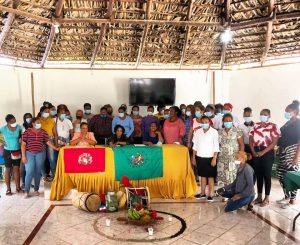
What does the movement for the rights of rural Dominican women look like?
Juana: Well, look. For the Dominican Republic, the feminist movement, the peasant movement has had its ups and downs.
We can now talk about the existence of a great alliance between the feminist movement and the rural movement and the social organizations to advance in the struggle for environmental rights, the struggle against mining, the struggle against violence against women, the struggle for the recovery of natural resources, against privatization.
The Dominican Republic now has a relatively strengthened feminist movement, in which we, organized rural women, are also present in the spaces of the Afro movement and at the international level.
We also have a presence iin La Vía Campesina, the CLOC, and in the World March of Women. We’re also part of the Latin American Women’s Health Network, which is a very important space.
We’re also part of other networks that work on the issue of food sovereignty, on the issue of access to housing, and also our relationship with Haiti. We’re one island; we are two countries, on one island.
There have been difficulties having to do with the two governments (of Dominican Republic and Haiti), an example being the issue of the ruling that stripped away the nationality of Haitians of Haitian descent, who were tied up in the Dominican Republic. That also kind of united us a little bit in that struggle.
The whole situation that Haiti is going through is an issue that has been taken on by the social and peasant movement of the Dominican Republic, in solidarity with the Haitian people.
The same goes for all the processes of solidarity with Cuba, with Venezuela, with Nicaragua. There’s an entire movement in the Dominican Republic, in solidarity, which is rising up.
But for us, what’s really important is the strength we now have in the feminist movement in the Dominican Republic.
All of this has helped us to understand, within the organizations, what we are talking about when we speak of peasant and popular feminism, that these are our rights, that these are the rights of the peasant women and that all of this favors the peasant women and peasant men.
When we speak of peasant and popular feminism, the positive impact is not only on women, but also on men, young people, and adults in the rural countryside. We’ve also been developing an alliance between women and men on the issue and that’s why we’re able to speak about it today.
I think that in all of Latin America, in spite of some persistence of patriarchy, of the lack of discussion among some male comrades, we’ve been able to make progress. Male comrades now also understand and join the demands related to the rights of rural women.
The methodology and the way in which we’ve introduced the topic of popular peasant feminism, has helped bring about understanding, allowing militant women and grassroots women, who really deal with the topic, to now speak with more freely.
Now, we can speak more fluently, more fully about the topic, which is not just whatever issue; it’s an issue that has to do with rights, with women’s rights and it’s a rejection of patriarchy and the actions of patriarchy and capitalism. It’s when we’re able to understand this, that we can advance in rooting the subject of popular peasant feminism in our organizations.
By Kawsachun News
